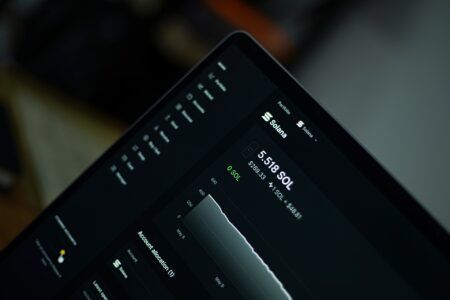On Friday (30 November 2018), at the CryptoCompare & MJAC London Blockchain Summit, Dan Morgan, Ripple’s Head of Regulatory Relations for Europe, was part of a regulatory panel discussion. In this article, we discuss some of the comments he made about Ripple.
During the Q&A session, I asked Dan what he thought about regularity clarity in the various markets that Ripple operates in, and if it was true that Asia and Latin America were the two regions where Ripple had the strongest presence. He replied:
“It's very early days, but we see the biggest appetite in Asian markets, in terms of demand, so remittance demand, whether it is corridors that are under-served because correspondence banking is too costly… So, we feel that there is demand.”
“Liquidity, in terms of digital assets, most liquidity we have… is in Asian markets by some distance.”
“And regulatory certainty is the third [factor]. Again, we see a number of pockets around Asia where they are further ahead that we are here… Thailand, I talked about. Obviously, Japan is another place.”
“So, you are absolutely right, it is Asia. I wouldn't want to pin down exact markets… In Thailand, for instance, with that regulation, I think Siam Commercial Bank… is really active now in terms of settlements, digital assets activity.”
Demand in Asia
As Ripple said on 28 September 2018:
“The inefficient management of global liquidity has long been a hurdle for cross-border payments in all regions across the world. However, this problem is particularly prominent in the Association of South Eastern Asian Nations (ASEAN) region, which has been largely underserved by correspondent banking. As a result, cross-border payments into these countries are inefficient and racked with high fees.”
“A lack of a standard integration in ASEAN for regional cross-border payments currently requires expensive work arounds. Neighboring countries relying on the correspondent banking system have to first convert currency into U.S. dollars, then settle across multiple correspondent banks before finally being exchanged to the currency used at the beneficiary institution. This cumbersome process requires numerous fees, including two sets of foreign exchange. As a result, there is little to no support for the low-value payments that small to medium enterprises (SMEs) and remitters need to make.”
This was the day that Ripple announced that Siam Commercial Bank (SCB) had become the first financial institution to use a feature of RippleNet called “multi-hop”, and what this meant:
“With multi-hop, financial institutions can connect directly to SCB, which can settle and payout across the region without exchanging currencies multiple times and adding heavy fees. The result is a seamless payments experience into and out of the ASEAN region. For smaller financial institutions which previously did not have the ability to make payments into ASEAN, multi-hop will democratize access to those countries and make payments easier, regardless of payment size or their financial institution’s pool of liquidity.”
Regularity Clarity in Asia
Let’s take Japan, one of the two countries cited by Morgan, and a place that Sagar Sarbhai, Ripple’s Head of Government & Regulatory Relations for APAC & Middle East, has talked and written about in the past.
For example, on 15 October 2018, Sarbhai wrote:
“Japan has a long-standing progressive attitude to digital assets and exchanges. As other major Asian economies like China and India have opted for bans, Japan boosted its position. Today around half of the world’s virtual currency trade happens there.”
Then, on 5 November 2018, Sarbhai wrote about Thailand, the other country mentioned by Morgan:
“Like Japan, Thailand’s Central Bank, the Bank of Thailand (BOT), was reacting to market demand for digital assets when it moved decisively in 2018 to protect its consumers and institutions, by banning banks from offering services to digital asset exchanges. Then, just a few months later, the Thai government switched course and announced progressive regulations designed to encourage investment and innovation.”
“According to the Thai government’s decree, virtual currencies are classified as digital assets, while the country now has a framework for licensing exchanges. The regulations also include protections for consumers as well as for financial organizations like banks, who are now required to form subsidiaries for dealing with ICOs as a buffer against losses.”
“Thailand is already seeing an increase in retail and institutional participation in the digital asset market, including foreign investors. Further, the government’s pragmatic and collaborative approach has gradually helped to evolve policies that protect consumers and financial institutions, while positioning Thailand as ASEAN’s premier digital asset hub.”








